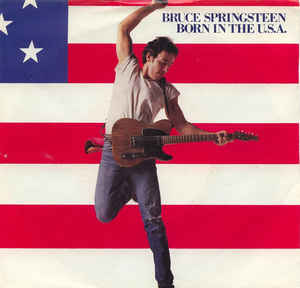
By Nicholas Nerli
In 1840, President Martin Van Buren sought reelection against Whig candidate William Henry Harrison, a War of 1812 hero and long-serving American statesman. The country faced a deep economic recession following the 1837 financial crisis, making the 1840 presidential campaign particularly partisan. Van Buren benefited from incumbency and support from Washington elites while Harrison, the good ol’ boy candidate, stumped across the country. Harrison campaign events were contemporary tailgate parties, complete with raucous speeches, hard cider on tap and music composed by supporters. Songs like “The Harrison Song” and “Tippecanoe and Tyler Too” were sung in bars and on street corners until, on Election Day, Harrison decisively defeated Van Buren.
William Henry Harrison was the first political candidate to strategically use music to attract the electorate, effectively founding a pillar in American political campaigns. Today, candidates play tunes that reflect their policy positions, rile up their supporters, and advocate for American exceptionalism. However, as the rights of artists became better recognized, campaigns saw increased objection from musicians against the use of some songs. Modern candidates often play popular hits without an artist’s permission and public disagreements over song usage is a common occurrence during election season.
Some would argue no song is controversially played during campaign events more often than Bruce Springsteen’s “Born in the U.S.A.” Beginning in 1984, when Springsteen told Ronald Reagan not to use the song in his reelection bid, the Boss made it clear his music is available only to politicians that share his political ideology. After all, “Born in the U.S.A.” is a song bashing the Vietnam War, criticizing Reagan-era policies and honoring hardships of the working class. Since Reagan, Springsteen has publicly criticized Bob Dole, Pat Buchanan and Donald Trump for playing his music throughout their campaigns.
During the 2016 presidential campaign, Donald Trump received backlash from Adele, Neil Young, the Rolling Stones and Twisted Sister for inappropriately playing their music without permission. Despite a decades-old relationship with Trump, Elton John refused to perform at the President-elect’s inauguration after his campaign played “Tiny Dancer” and “Rocket Man” against the artist’s requests. Aerosmith sent Trump a cease-and-desist letter for improperly using “Dream On” throughout the campaign. Trump joins Newt Gingrich, John McCain, Mike Huckabee, Mitt Romney and Ted Cruz on the list of politicians who have been subject to legal action for wrongfully playing songs without an artist’s approval.
With just a few weeks left before the 2018 midterms, artists are once again using music as a call-to-arms for voters. Recently, Willie Nelson headlined a campaign event with Congressman Beto O’Rourke, the Texas Democrat seeking to unseat Republican Senator Ted Cruz. Nelson performed a catchy new tune entitled “Vote ‘Em Out,” which sparked outrage from conservative fans. In response, Nelson, smirk on his face and middle finger extended, succinctly said “I don’t care.”
As long as artists continue producing music that speaks to listeners’ hearts, politicians will play songs to unite their constituencies, even if it requires crossing ethical or legal lines. Head-bangers, tear-jerkers and political anthems all serve as advantageous engines for campaign strategy. Despite controversy, it is clear that American politics and the American songbook walk hand-in-hand.
Subscribe to the Mossy Log Newsletter
Stay up to date with the goings-on at Lewis & Clark! Get the top stories or your favorite section delivered to your inbox whenever we release a new issue.

Doesn’t look like your got your majority in the house, those republican voter suppression tactics aint what they used to be. Beto luck next time, Cheryl
Catchy tune…but in this case, we need to keep Senator Ted Cruz in Texas. The recent riots and shootings and violence shows the way that leftists deal with life and to avoid more of the same, we need a Republican majority in the House and Senate. Vote Ted Cruz (R) in as Senator in Texas to keep his Senate seat. Vote Republican!